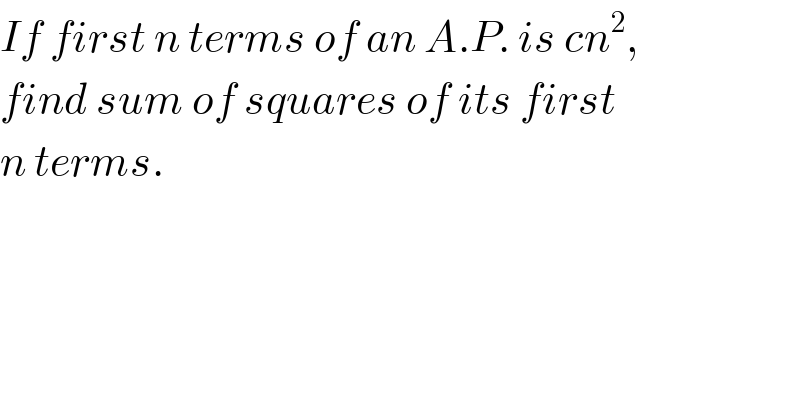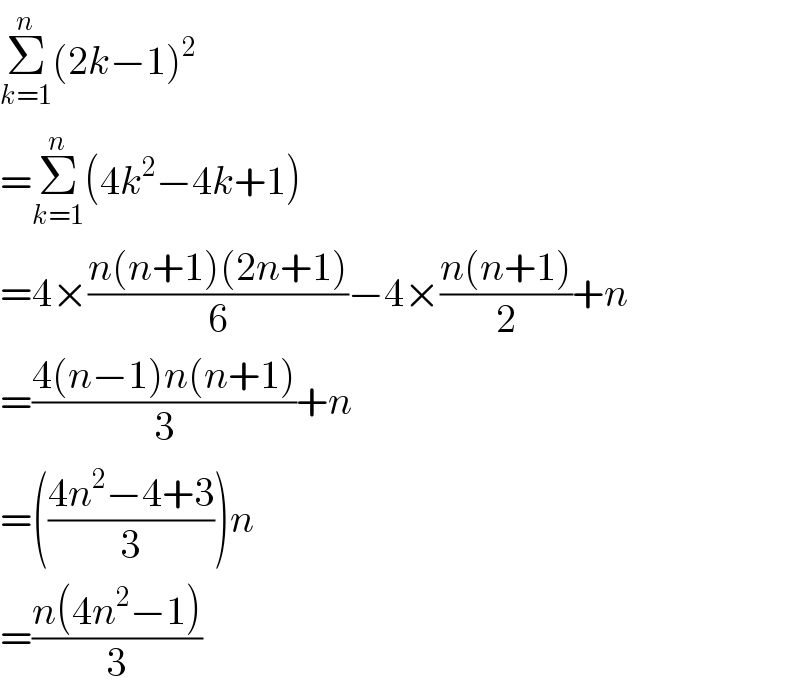
Question and Answers Forum
Question Number 109901 by ajfour last updated on 26/Aug/20

Answered by mr W last updated on 26/Aug/20
![a_1 +(a_1 +d)+(a_1 +2d)+....+(a_1 +(n−1)d) =na_1 +((n(n−1)d)/2)=n[a_1 −(d/2)+((nd)/2)]=cn^2 ⇒a_1 −(d/2)=0 ⇒d=2a_1 ⇒(d/2)=c ⇒d=2c ⇒a_1 =c, d=2c c^2 +(3c)^2 +(5c)^2 +...((2n−1)c)^2 =[1^2 +3^2 +5^2 +...(2n−1)^2 ]c^2 =((n(4n^2 −1)c^2 )/3)](Q109904.png)
Commented by ajfour last updated on 26/Aug/20

Commented by mr W last updated on 26/Aug/20

| ||
Question and Answers Forum | ||
Question Number 109901 by ajfour last updated on 26/Aug/20 | ||
 | ||
Answered by mr W last updated on 26/Aug/20 | ||
![a_1 +(a_1 +d)+(a_1 +2d)+....+(a_1 +(n−1)d) =na_1 +((n(n−1)d)/2)=n[a_1 −(d/2)+((nd)/2)]=cn^2 ⇒a_1 −(d/2)=0 ⇒d=2a_1 ⇒(d/2)=c ⇒d=2c ⇒a_1 =c, d=2c c^2 +(3c)^2 +(5c)^2 +...((2n−1)c)^2 =[1^2 +3^2 +5^2 +...(2n−1)^2 ]c^2 =((n(4n^2 −1)c^2 )/3)](Q109904.png) | ||
| ||
Commented by ajfour last updated on 26/Aug/20 | ||
 | ||
Commented by mr W last updated on 26/Aug/20 | ||
 | ||